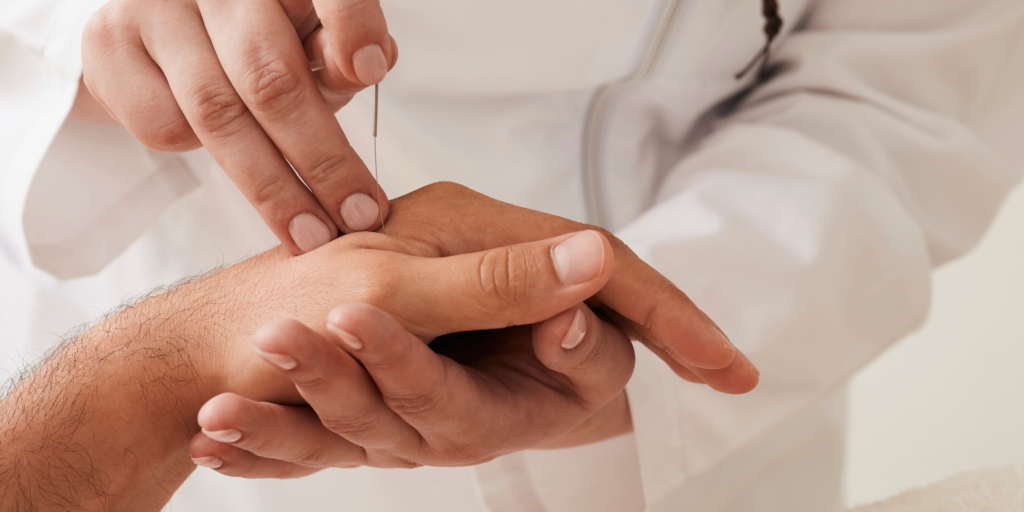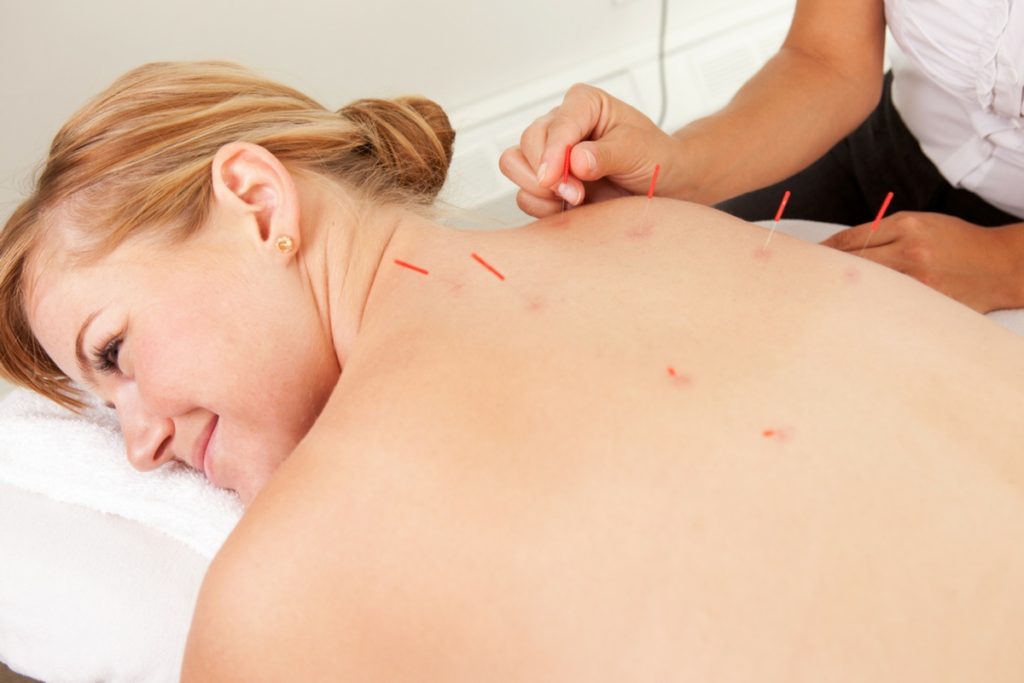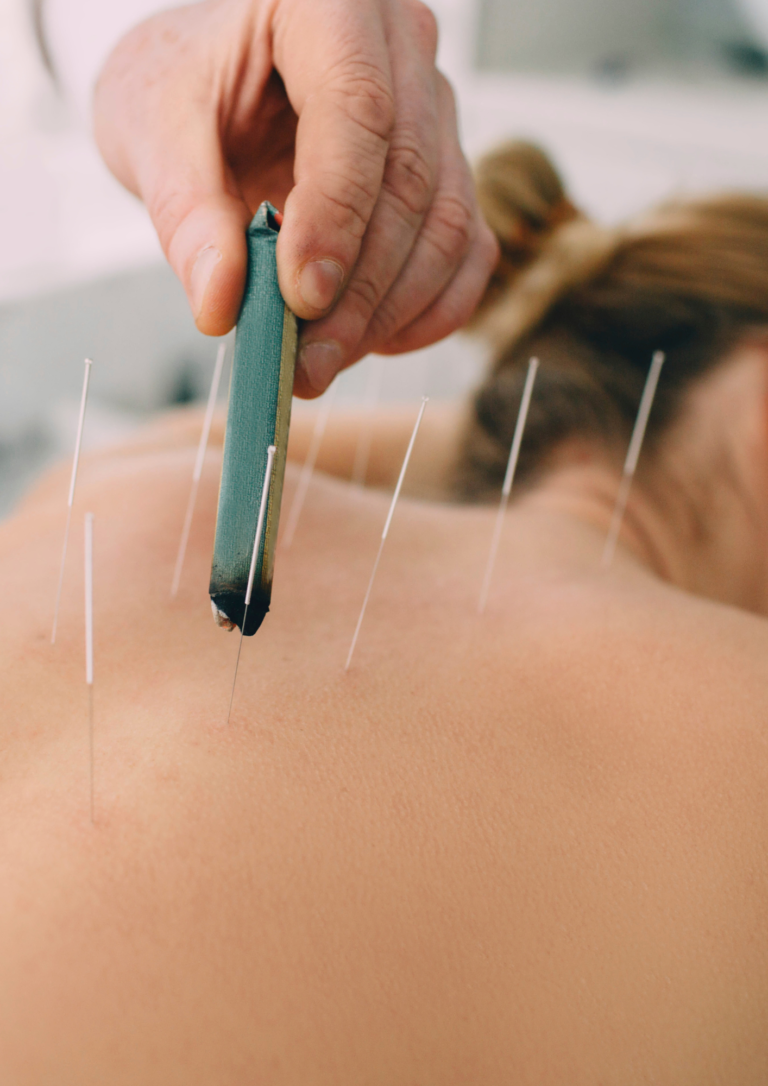What is acupuncture?
Acupuncture is an integral part of traditional Chinese medicine, dating back thousands of years. It involves the insertion of thin needles into specific points on the body to stimulate energy inflow and promote tone-mending. This gentle and non-invasive approach is grounded in the belief that the body has a vital energy force, known as Qi, which travels through pathways called meridians. By targeting these meridians, acupuncture aims to restore balance and harmony to the body. It isn't just about needles; it's a holistic system that takes into account the body's physical, internal, and emotional well-being. It considers the body as a whole and treats the root cause of the problem rather than just the symptoms. This comprehensive approach contributes to its effectiveness in addressing colorful health issues. Acupuncture is believed to open or stimulate energy inflow and restore balance to the body. There are a number of medical conditions that can be treated with this medicine, including pain, stress, and digestive issues. It is not just about needles; it is a holistic system that takes into account the individual's physical, mental, and emotional well-being. It considers the body as a whole and treats the root cause of the problem instead of just the symptoms. This comprehensive approach contributes to its effectiveness in addressing various health issues. It is believed to unblock or stimulate energy flow and restore balance to the body. There are a number of medical conditions that can be treated with this drug, including pain, stress, and digestive issues.
Top 5 Acupuncture benefits:
It has gained recognition for its wide range of benefits, beyond pain relief. It's known to be effective in treating colorful conditions, both acute and habitual. Then are some of the crucial benefits of acupuncture:
1. Pain relief: Acupuncture is well-known for its capability to alleviate pain, whether it's musculoskeletal pain, migraines, or menstrual cramps. By targeting the underpinning imbalances in the body, acupuncture can provide long-term relief without the use of drugs.
2. Stress and anxiety reduction: Acupuncture has a comforting effect on the nervous system, helping to reduce stress and anxiety. It can ameliorate sleep quality, enhance mood, and promote a sense of well-being.
3. Digestive disorders: Acupuncture can help with digestive issues such as perverse bowel patterns ( IBS), acid influx, and constipation. It can regulate digestive function and promote better immersion of nutrients.
4. Respiratory ailments: Acupuncture has been used for centuries to treat respiratory conditions such as asthma, disinclinations, and sinusitis. It can reduce inflammation, ameliorate lung function, and alleviate symptoms.
5. Fertility support: Acupuncture is frequently used in conjunction with fertility treatments to ameliorate reproductive health and increase the chances of generality. It can regulate hormone situations, ameliorate blood inflow to the reproductive organs, and reduce stress.
These are just a few exemplifications of the numerous benefits of acupuncture. Its holistic approach makes it suitable for a wide range of conditions, and its gentle nature makes it a safe and effective treatment option for people of all ages.
Conditions treated with acupuncture:
It can be used to treat a wide range of conditions, both physical and emotional. Then are some of the conditions that can benefit from acupuncture:
1. Pain conditions: Acupuncture is particularly effective in treating habitual pain conditions such as reverse pain, neck pain, arthritis, and fibromyalgia.
2. Mental health issues: Acupuncture can help with anxiety, depression, stress, and wakefulness by promoting relaxation and balancing the nervous system.
3. Women's health: Acupuncture can address menstrual irregularities, PMS symptoms, menopause symptoms, and fertility issues.
4. Digestive disorders: Acupuncture can alleviate symptoms of digestive diseases such as IBS, acid influx, bloating, and constipation.
5. Respiratory conditions: Acupuncture can be a cure for asthma, disinclinations, sinusitis, and habitual coughs.
6. Neurological conditions: Acupuncture can give relief for conditions such as migraines, pressure headaches, and neuropathy.
7. Immune system support: Acupuncture can strengthen the vulnerable system and help with snaps, flu, and disinclinations.
t's important to note that acupuncture should be used as a reciprocal remedy alongside conventional medical treatment. It's always wise to consult with a good healthcare professional before starting acupuncture or any other voluntary remedy.
It is generally considered safe when performed by a good guru. The needles used are sterile, single-use, and disposable, minimizing the threat of infection. Still, as with any medical procedure, there are some pitfalls to be aware of. If you have any existing or pre-existing medical conditions, it’s important to discuss them with your acupuncturist before starting treatment. They will be suitable to address your enterprise and acclimate to the treatment plan accordingly.
- Bruising or bleeding: Occasionally, minor bruising or bleeding may occur at the insertion site. This is usually temporary and resolves on its own.
- Infection: Although rare, there is a small risk of infection if proper hygiene protocols are not followed. Make sure your acupuncturist uses sterile needles and maintains a clean environment.
- Punctured organs: While extremely rare, there have been reports of organ puncture due to incorrect needle placement. This risk can be minimized by choosing a qualified and experienced acupuncturist.
- Side effects: Some people may experience mild side effects such as dizziness, fatigue, or slight soreness at the needle sites. These side effects are usually temporary and resolve quickly.
If you have any concerns or pre-existing medical conditions, it is important to discuss them with your acupuncturist before starting treatment. They will be able to address your concerns and adapt the treatment plan accordingly.

How acupuncture works:
It works by stimulating specific points on the body, known as acupuncture points or acupoints. These points are located along the meridians, which are the energetic pathways through which Qi flows. By inserting needles into these acupoints, acupuncturists can regulate the flow of Qi and restore balance to the body’s systems.
The insertion of acupuncture needles is relatively painless, as the needles used are extremely thin. Most people describe the sensation as a slight tingling or dull ache. Once the needles are in place, they may be gently manipulated or stimulated by the acupuncturist to enhance the effectiveness of the treatment.
It also has an impact on the nervous system, triggering the release of natural pain-relieving chemicals, such as endorphins. It can also stimulate blood circulation, improve immune function, and promote the release of neurotransmitters that regulate various bodily functions. These physiological responses contribute to the therapeutic effects of acupuncture.
What to expect during an acupuncture session:
If you decide to try acupuncture, here's what you can expect during a typical session:
Initial consultation: During the first session, the acupuncturist will gather information about your medical history, current symptoms, and lifestyle. This will help them develop a personalized treatment plan tailored to your specific needs.
Needle insertion: The acupuncturist will insert thin, sterile needles into the selected acupuncture points. The number of needles used may vary depending on the condition being treated.
Needle sensation: You may feel a slight tingling or dull ache when the needles are inserted. This sensation is usually mild and dissipates quickly.
Needle retention: The needles will be left in place for about 15-30 minutes. During this time, you may feel a deep sense of relaxation as the treatment takes effect.
Aftercare: After the needles are removed, the acupuncturist may recommend specific lifestyle changes or herbal remedies to support the treatment's effectiveness.
It is important to choose a qualified and licensed acupuncturist to ensure a safe and effective treatment. Look for practitioners who have completed a recognized acupuncture program and are registered with a professional governing body.
Finding an expert acupuncture practitioner:
Finding a qualified acupuncture practitioner can be crucial to ensure a safe and effective treatment. Here are some tips on finding the right acupuncturist:
- Credentials and qualifications: Look for acupuncturists who have completed a recognized training program and are licensed or registered with a professional governing body.
- Experience: Inquire about the acupuncturist’s experience in treating your specific condition. Ask for testimonials or references from previous clients.
- Referrals: Seek recommendations from trusted healthcare professionals, friends, or family members who have had positive experiences with acupuncture.
- Communication and rapport: Choose an acupuncturist who listens to your concerns, answers your questions, and makes you feel comfortable throughout the treatment process.
- Clean and safe environment: Ensure that the acupuncture clinic follows strict hygiene protocols and maintains a clean and welcoming environment.
Remember to trust your instincts when choosing an acupuncturist. If something doesn’t feel right or if you’re not comfortable with the practitioner, it’s okay to seek another opinion.
In what ways can acupuncture optimize painless treatment?
Acupuncture can optimize painless treatment by stimulating the body’s natural pain-relieving mechanisms, such as releasing endorphins and reducing inflammation. Additionally, acupuncture can help improve circulation and promote relaxation, which can further enhance the body’s ability to heal itself
Contact
Contact to our center, where we are committed to supporting you as you go on your path to recovery and personal development.
- 879-970-9409
- mayankgaur1957@gmail.com
- F-47 3rd Floor Milap Nagar, Uttam Nagar, New Delhi, Near Metro Station



